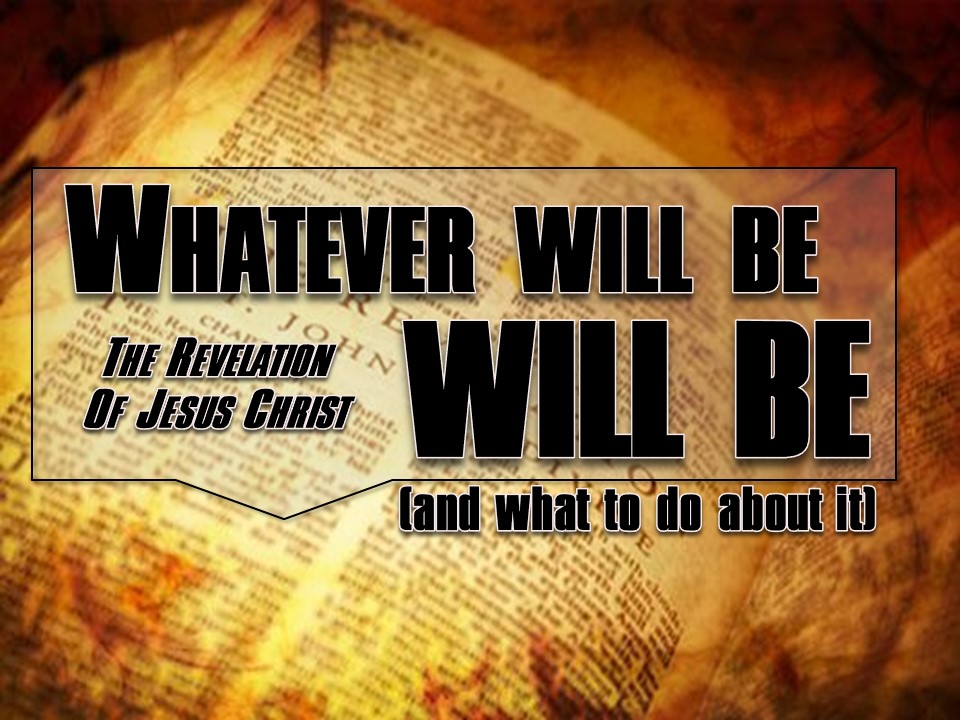
 The word “Hell” has become a commonplace term in our culture and is often censored as vulgar language when used as an expression. Although the word itself is not a “cuss” word, it can be used in a light and frivolous way, and there is nothing frivolous about it.
The word “Hell” has become a commonplace term in our culture and is often censored as vulgar language when used as an expression. Although the word itself is not a “cuss” word, it can be used in a light and frivolous way, and there is nothing frivolous about it.
Those who do not believe in a literal interpretation of the Bible subscribe to various beliefs about Hell. Many think of it as a place where people go for a while until they finish pay off the debt accrued by their sins, at which point they are set free to go to Heaven. Others have a hard time understanding how a loving God could send a person to such an awful place.
Even those who believe in a literal interpretation of the Bible often misunderstand Hell. Many Christians think that when an unsaved person dies, they go straight to Hell and stay there forever. However, that’s not entirely true either. With all these errant beliefs about Hell, we need to understand for ourselves just what it is.
Hell Defined
In the Old Testament, the word translated as “hell” is the Hebrew word sheol (Strong’s 7585). It appears sixty-five times in the Bible and is also translated as “grave” or “pit.” Basically, sheol means “the place of the dead.” One place this word appears is in the story of Korah, who stood up in rebellion against Moses. The earth opened and swallowed him and all his followers, and they went down alive “into the pit” (Numbers 16:33).
The writers of the New Testament used hades (Strong’s 86), a Greek word similar to the Hebrew sheol. Neither sheol nor hades necessarily describes the place of eternal punishment for sinners. It is simply the place of the dead.
When Jesus came to earth, He began using a different term to describe the punishment for unbelievers. He used the word gehenna (Strong’s 1067), which means “Valley of Hinnom.” This word appears twelve times in the New Testament. The valley to which Jesus referred sits just outside of Jerusalem. At one time, live child sacrifices to pagan gods were carried out in this place. Eventually it became a dump where trash and criminals’ bodies were burned. One can easily conjure up an image of the awfulness of such a place. When the always colorful Messiah discussed eternal punishment for sin, He provided an image that all present could understand.
Hell Described
Beyond His comparison to Hell as being like the burning refuse in the Valley of Hinnom, Jesus described the place by sharing the story of a poor man named Lazarus and a rich man.
There was a certain rich man who was clothed in purple and fine linen and fared sumptuously every day. But there was a certain beggar named Lazarus, full of sores, who was laid at his gate, desiring to be fed with the crumbs which fell from the rich man’s table. Moreover the dogs came and licked his sores. So it was that the beggar died, and was carried by the angels to Abraham’s bosom. The rich man also died and was buried. And being in torments in Hades, he lifted up his eyes and saw Abraham afar off, and Lazarus in his bosom.
Then he cried and said, “Father Abraham, have mercy on me, and send Lazarus that he may dip the tip of his finger in water and cool my tongue; for I am tormented in this flame.” But Abraham said, “Son, remember that in your lifetime you received your good things, and likewise Lazarus evil things; but now he is comforted and you are tormented. And besides all this, between us and you there is a great gulf fixed, so that those who want to pass from here to you cannot, nor can those from there pass to us.”
Then he said, “I beg you therefore, father, that you would send him to my father’s house, for I have five brothers, that he may testify to them, lest they also come to this place of torment.” Abraham said to him, “They have Moses and the prophets; let them hear them.” And he said, “No, father Abraham; but if one goes to them from the dead, they will repent.” But he said to him, “If they do not hear Moses and the prophets, neither will they be persuaded though one rise from the dead” (Luke 16:19-31)
There is a good deal of discussion over whether this is a historical account or a parable. Either way, the truth of a literal place of eternal torment is undiminished. The focus of the teaching of Jesus was not whether the rich man and Lazarus actually existed or if Paradise and Torment are or were in close physical proximity. His point was to warn His listeners about the radically diverse options available for the afterlife. Some will experience bliss whereas others will consciously endure unrelenting agony.
Several characteristics of Hell can be understood through this account. First, Hell is clearly a place of torment. Second, it is a place of regrets. The rich man could remember his luxurious life, but it proved worthless in eternity. Third, it is a place of loneliness. The rich man knew that having his brothers with him would bring him no comfort. Hell is no place of partying, not even for the Devil. In fact, Hell was originally not created for man, but as a punishment for the Devil and the angels who followed him.
Then He will also say to those on the left hand, “Depart from Me, you cursed, into the everlasting fire prepared for the devil and his angels:” (Matthew 25:41)
Finally, Hell is eternal. After a person draws his final breath on earth, his eternal future is locked in, and nothing can change it. Jesus warned that “If your hand causes you to sin, cut it off. It is better for you to enter into life maimed, rather than having two hands, to go to hell, into the fire that shall never be quenched” (Mark 9:43).
Many people subscribe to the notion of purgatory, which is the idea that some people will have to pay for their sins in Hell until they are worthy of Heaven. Zachary Hayes, a teacher of Catholic theology, wrote this summarizing his view of Purgatory:
In summary, the notion of a purgatory is intimately related to the conviction that our eternal destiny is irrevocably decided at the moment of our death and that, ultimately, our eternal destiny can be only heaven or hell. But not everyone seems “bad enough” to be consigned to an eternal hell. And most do not seem “good enough” to be candidates for heaven. Therefore, something has to happen “in between.” But this cannot mean a coming back to this life and getting another chance since our destiny is decided at the moment of our death. Therefore, some sort of a cleansing process is postulated between death and the entrance into heaven.
A contemporary Roman Catholic theologian, Cardinal Ratzinger, formulates the concept of purgatory in the following way. Purgatory, he writes, means that there is some unresolved guilt in the person who has died. Hence there is a suffering which continues to radiate because of this guilt.[i]
What both Zachary Hayes and Cardinal Ratzinger (who later became Pope Benedict XVI) miss is an understanding of the sufficiency of the blood of Jesus Christ for salvation. Paul notes that “Much more then, having now been justified by his blood, we shall be saved from wrath through Him” (Romans 5:9). If we have already been justified, why do we have to continue to pay off our sin debt? Furthermore, through Jesus we have “redemption through His blood, the forgiveness of sins” (Colossians 1:14).
A common question put forth by those who struggle with the existence of a literal Hell is this: “How can a loving God send people to Hell?” The answer is that if God is holy, He has to allow people to go to Hell as a fitting punishment for their sin. However, if God is loving, He will find a way of escape. The God of the Bible is both holy and loving, and He did both. John Walvoord summed it up well: “God is a God of infinite righteousness as well as infinite love.”[ii]
Hell Deserved
The awful reality of Hell is that it is deserved by every man and woman who has ever lived. It is the result of sin.
For the wages of sin is death, but the gift of God is eternal life in Christ Jesus our Lord. (Romans 6:23)
The natural course of man is to take the easy way out. He prefers to ignore his sin and reject the possibility that he will be held accountable for it.
Enter by the narrow gate; for wide is the gate and broad is the way that leads to destruction, and there are many who go in by it. Because narrow is the gate and difficult is the way which leads to life, and there are few who find it. (Matthew 7:13-14)
The way of salvation is not the easy way, and it is not the default path of mankind. A choice must be made to enter into the narrow and difficult path of salvation.
Hell Destroyed
Those who die without Christ go to a place of torment in sheol. However, one day they will be called out and judged. Then they will be cast into a lake of fire, and sheol itself will follow.
Then I saw a great white throne and Him who sat on it, from whose face the earth and the heaven fled away. And there was found no place for them. And I saw the dead, small and great, standing before God, and books were opened. And another book was opened, which is the Book of Life. And the dead were judged according to their works, by the things which were written in the books. The sea gave up the dead who were in it, and Death and Hades delivered up the dead who were in them. And they were judged, each one according to his works. Then Death and Hades were cast into the lake of fire. This is the second death. And anyone not found written in the Book of Life was cast into the lake of fire. (Revelation 20:11-15)
Hell Defanged
Through the dark clouds of the reality of a literal eternal Hell shines a light of hope. Christ defeated Hell, rendering it powerless for His followers.
I am He who lives, and was dead, and behold, I am alive forevermore. Amen. And I have the keys of Hades and of Death. (Revelation 1:18)
O Death, where is your sting?O Hades, where is your victory?” The sting of death is sin, and the strength of sin is the law. But thanks be to God, who gives us the victory through our Lord Jesus Christ. (I Corinthians 15:55-57)
Jesus Christ holds the keys of hell and death. For the Christian, therefore, death holds no power. The victory is won through Christ! The most celebrated verse in the Bible describes how one can realize this victory.
For God so loved the world that He gave His only begotten Son, that whoever believes in Him should not perish but have everlasting life. (John 3:16)
Hell cannot be defanged through penance, suffering, or good works. It only comes through belief in Jesus Christ, a belief that makes you realize you can gain God’s acceptance not on your merits, but on the finished work of Jesus Christ.
[i] Crockett, William, ed. Four Views On Hell. Grand Rapids: Zondervan, 1996, 99.
[ii] Ibid., 27.


